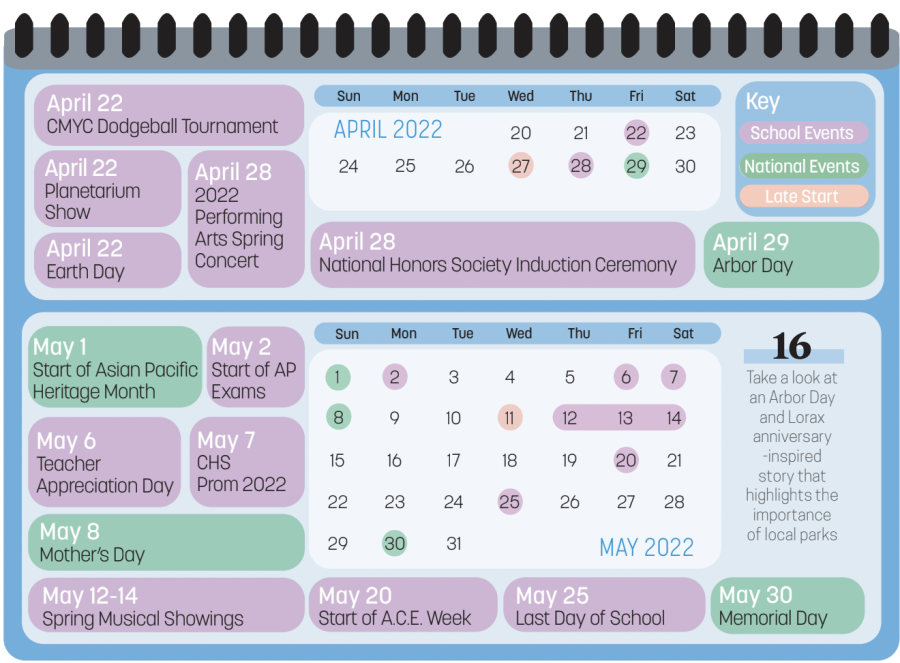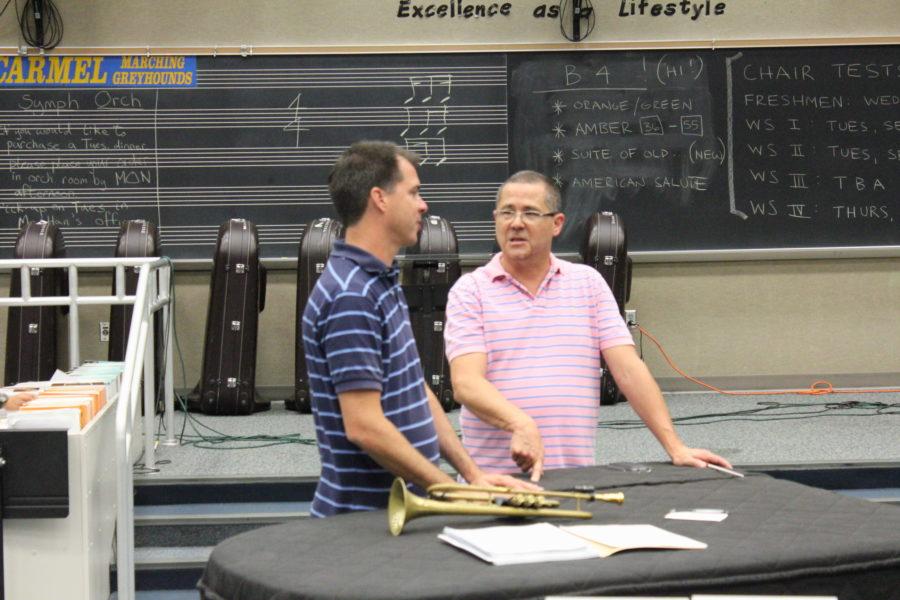Before her audition for her sophomore year of band, Stephanie Caress, Wind Symphony I percussionist and junior, said that she remembers practicing timpani on five pillows laid upon the ground. Then, recalling the actual audition, she said, “I went into audition not knowing how to play full mallets, and I ended up playing it all wrong. But I still got a good score.”

When it comes to student evaluations, band, like many other elective courses, is different from a “core” class. Whereas written assessments dominate a student’s evaluation in a core course, in a class such as band, Caress said, student evaluations are primarily based on performance-based tests. And because of the new RISE evaluation system, these differences in student evaluation now play a larger role in teacher assessment.
Trying to push educators to be more effective and to thus improve education, school districts across Indiana introduced RISE to provide a professional method of evaluating teachers, according to riseindiana.org. In this new evaluative system, teachers are assessed in four areas, two of them being heavily based upon how students themselves perform.
These two categories combine to occupy 20 percent of a teacher’s overall evaluation. Thus, the difference between a core course and an elective course would not be on how much student data impacts a teacher’s performance, but rather how students are evaluated. For pre-calculus/pre-stat, math teacher Dan Perdun said, student data would be mostly based on the finals at the end of each semester.
“If I’m going to be assessed as highly effective, effective or one of the others on student data,” Perdun said, “do students understand the impact that they may have?”
On the other hand, in courses such as Physical Education I and II, the FitnessGram, a method of measuring cardiovascular health, is used to collect student data, according to Kim TenBrink, physical education department chairperson.
Similarly, in a course such as band, instrument mastery plays a large role in student evaluations, according to Richard Saucedo, performing arts department co-chairperson. For instance, Saucedo said, a student may be assessed on sight reading at the beginning and at the end of a semester.
“What we’re hoping to see is that (students) sight-read it completely differently and completely better than they did early on,” Saucedo said.
Despite these differences in assessment strategies, courses across CHS still have common ground. For instance, Caress points out that while student evaluations differ, they’re all equally challenging—just in different ways. And because of this level of rigor, Saucedo said he was optimistic about RISE.
“The standards that we set, we like to feel, are already at the state standard level and even past them, a little bit,” Saucedo said.
“I definitely chose to come to Carmel because of that,” Perdun said. “I wanted to be somewhere where the expectation on me as a professional was to do the best job that I can.”


































![British royalty are American celebrities [opinion]](https://hilite.org/wp-content/uploads/2024/03/Screenshot-2024-03-24-1.44.57-PM.png)


















![Review: “Suits” is a perfect blend of legal drama and humor [MUSE]](https://hilite.org/wp-content/uploads/2024/04/unnamed-1.png)
![Chelsea Meng on her instagram-run bracelet shop [Biz Buzz]](https://hilite.org/wp-content/uploads/2024/04/IMG_2446-1200x838.jpg)
![Review: Quiet on Set: The Dark Side of Kids TV is the long awaited exposé of pedophilia within the children’s entertainment industry [MUSE]](https://hilite.org/wp-content/uploads/2024/04/unnamed.jpg)
![Review: “The Iron Claw” cannot get enough praise [MUSE]](https://hilite.org/wp-content/uploads/2024/04/unnamed.png)
![Review: “The Bear” sets an unbelievably high bar for future comedy shows [MUSE]](https://hilite.org/wp-content/uploads/2024/03/unnamed.png)
![Review in Print: Maripaz Villar brings a delightfully unique style to the world of WEBTOON [MUSE]](https://hilite.org/wp-content/uploads/2023/12/maripazcover-1200x960.jpg)
![Review: “The Sword of Kaigen” is a masterpiece [MUSE]](https://hilite.org/wp-content/uploads/2023/11/Screenshot-2023-11-26-201051.png)
![Review: Gateron Oil Kings, great linear switches, okay price [MUSE]](https://hilite.org/wp-content/uploads/2023/11/Screenshot-2023-11-26-200553.png)
![Review: “A Haunting in Venice” is a significant improvement from other Agatha Christie adaptations [MUSE]](https://hilite.org/wp-content/uploads/2023/11/e7ee2938a6d422669771bce6d8088521.jpg)
![Review: A Thanksgiving story from elementary school, still just as interesting [MUSE]](https://hilite.org/wp-content/uploads/2023/11/Screenshot-2023-11-26-195514-987x1200.png)
![Review: When I Fly Towards You, cute, uplifting youth drama [MUSE]](https://hilite.org/wp-content/uploads/2023/09/When-I-Fly-Towards-You-Chinese-drama.png)
![Postcards from Muse: Hawaii Travel Diary [MUSE]](https://hilite.org/wp-content/uploads/2023/09/My-project-1-1200x1200.jpg)
![Review: Ladybug & Cat Noir: The Movie, departure from original show [MUSE]](https://hilite.org/wp-content/uploads/2023/09/Ladybug__Cat_Noir_-_The_Movie_poster.jpg)
![Review in Print: Hidden Love is the cute, uplifting drama everyone needs [MUSE]](https://hilite.org/wp-content/uploads/2023/09/hiddenlovecover-e1693597208225-1030x1200.png)
![Review in Print: Heartstopper is the heartwarming queer romance we all need [MUSE]](https://hilite.org/wp-content/uploads/2023/08/museheartstoppercover-1200x654.png)






















![Review: Ladybug & Cat Noir: The Movie, departure from original show [MUSE]](https://hilite.org/wp-content/uploads/2023/09/Ladybug__Cat_Noir_-_The_Movie_poster-221x300.jpg)

![Review: Next in Fashion season two survives changes, becomes a valuable pop culture artifact [MUSE]](https://hilite.org/wp-content/uploads/2023/03/Screen-Shot-2023-03-09-at-11.05.05-AM-300x214.png)
![Review: Is The Stormlight Archive worth it? [MUSE]](https://hilite.org/wp-content/uploads/2023/10/unnamed-1-184x300.png)




